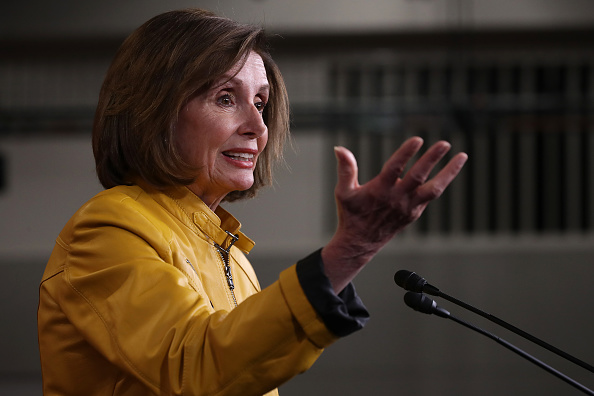Controversy over the recent attacks on international shipping in the Gulf of Oman is dominating the American public discussion: The Trump administration and Congressional Republicans are pushing a hard line, while Democrats and much of the media are conflicted over whether to assign responsibility for the attacks to Iran.
REPUBLICANS CALL FOR HARSH RESPONSE TO GULF ATTACKS
The Trump administration has expressed high confidence that Iranian forces were responsible for the June 13 attack on two oil tankers in the Gulf of Oman. As U.S. Secretary of State Mike Pompeo told Fox News Sunday, "The intelligence community has lots of data, lots of evidence" of Iranian complicity. "The world will come to see much of it, but the American people should rest assured we have high confidence with respect to who conducted these attacks as well as half a dozen other attacks throughout the world."
While the administration has not yet outlined a response, Republican Senator Tom Cotton of Arkansas was swift in urging military retaliation. In a Sunday morning interview on CBS News’ Face the Nation, Senator Cotton said, “What I'm talking about is not like what we've seen in Iraq for the last 16 years or Afghanistan for the last 18 years … [but that the U.S. should initiate] “retaliatory military strikes against Iran that make it clear we will not tolerate any kind of attacks on commercial shipping on the open seas.”
DIVISION, SKEPTICISM AMONG LEADING DEMOCRATS
For their part, leading Democrats were more divided on whether to assign blame for the shipping attacks to Iran or lend credence to the administration’s account of events. On Meet the Press, Mayor Pete Buttigieg, a leading candidate in the Democratic presidential primary, said, “what we see out of the White House is something disturbingly reminiscent of the kind of accelerating drumbeat that got us into the war in Iraq.” By contrast, Congressman Adam Schiff, chairman of the House Intelligence Committee, stated unequivocally that there was “no question that Iran's behind the attacks. I think the evidence is very strong and compelling. In fact, I think this is a Class A screw-up by Iran.”
Skepticism of the administration was pronounced in progressive quarters of the national media. Former Obama administration official Ben Rhodes, known for his advocacy of the JCPOA, said, “This definitely feels like the kind of incident where you'd want an international investigation to establish what happened. Huge risk of escalation.” Senator Bernie Sanders, a leading contender for the Democratic presidential nomination, went further: “The Gulf of Oman incident must not be used as a pretext for war with Iran. War would be an unmitigated disaster for the United States, Iran, the region, and the world.”
For her part, Democratic Speaker of the House Nancy Pelosi showed willingness to assign blame to Iran but also conveyed firm opposition to any form of military retaliation: “We have absolutely no appetite for going to war, or to be provocative to create situations that might evoke responses, where mistakes could be made. You know, it's one [of the ways] countries exercise their leverage. They threaten. They [do] this or that. But there could be mistakes made, and that's a very dangerous thing.”

THE PATH FORWARD
Washington’s divided reaction to the Iranian attacks on international shipping highlight a critical challenge for the Trump administration. A highly polarized political climate has intensified skepticism of any intelligence which might support the case for a new war in the Middle East. Whether the U.S. can respond effectively to the latest round of Iranian probing may turn on the administration’s strategy for allaying the concerns of leading Democrats and European allies.






